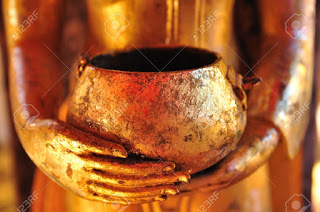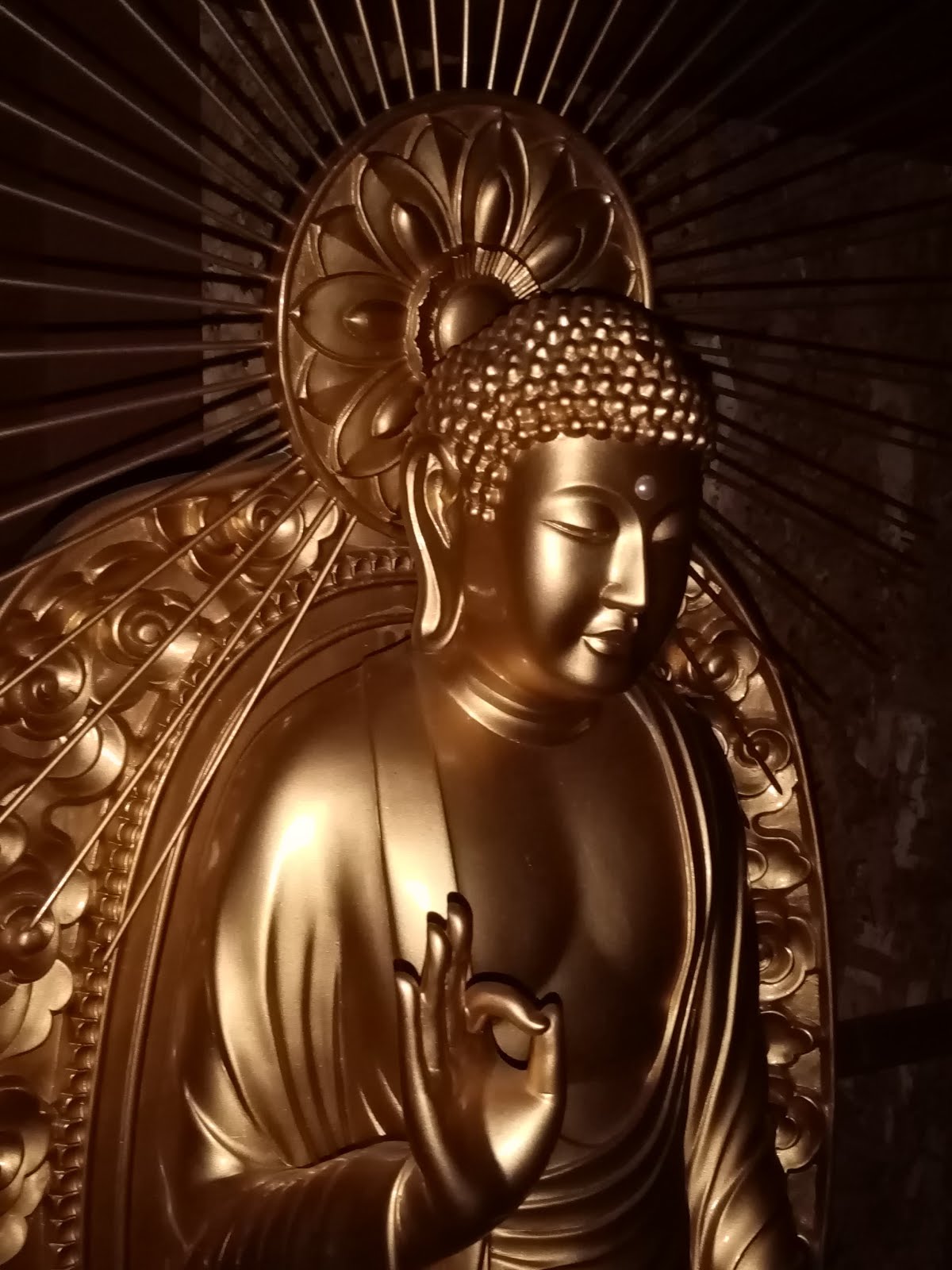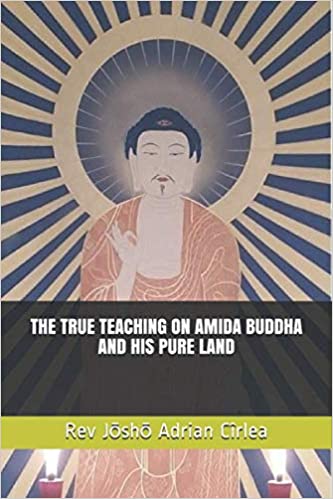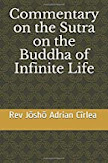 |
| the Human Realm from the Wheel of Life |
1) The suffering of birth
According to the Buddha Dharma life in human form starts at
the moment of conception when the conscience of a being in the intermediate
state enters the cell formed after the union of male sperm with female egg
(ovum). From that moment until birth, the new being experiences various kinds
of sufferings associated with the different embryonic stages, which are
described in some sutras, like for example,
Garbhavakrantisutra: The Sutra on
Entry into the Womb, and various treatises. Whatever the mother eats or
drinks or if she passes through various painful or stressful situations can
affect the unborn baby. Also, when the pregnancy reaches term, the baby (and
mother too) experiences various sufferings associated with birth. Some can die
at that moment, but even those who survive might go through suffering very simmilar
with dying when they exit the womb.
Nobody ever came into this world smiling, but in a river of
tears. Also, birth is the the first step to death, as everything which is born
must die. We may have the impression of growth and maturing, but what we do in
fact, is making another step toward death, another rebirth, another death,
rebirth, death.... ad infinitum. The very fact that we were born is a sign that
we have not escaped samsara yet, and if we do not use well this precious human
life, our present birth will be just another cause for rebirth in the lower
realms.
2) The suffering of old age
When becoming old our bodies deteriorates, the hair becomes
white, wrinkles appear all over our face and forehead and we become
unnatractive.
When becoming old physical strenght and vigor deteriorate
and it becomes more and more difficult to sit or stand, walk, talk or do
various activities.
When becoming old our senses deteriorates, too. Our eyes
cannot see well and our ears cannot hear as they used to when we were young. We
also lose memory and other mental faculties.
When becoming old we cannot enjoy our sense objects. We have
difficulty in eating, drinking and cannot find happiness anymore in desirable
objects.
Seeing how body and mind deteriorate as we approach death,
ordinary beings which are attached to form cannot be happy.
Shakyamuni Buddha said in Lalitavistara Sutra:
"As aging
progresses and we pass a certain point,
We are like a tree
struck by lightning,
Withered by old age
like a terrible, decrepit house.
O Sage, speak quickly
about an escape from old age.
Age enfeebles the
masses of men and women
As a windstorm strips
vines from a grove of sal trees.
Age steals our vigor,
skill, and strength-
It is as though we are
stuck in mud.
Age makes attractive
bodies unattractive.
Age steals our glory
and our strength.
Age steals our
happiness and subjects us to insults.
Age takes our vigor;
age begets death."[1]
A Master of the past also said:
"One, you stand
yourself up as if pulling a peg from the ground;
Two, you creep along
as though you were stalking a bird;
Three, you sit down
like a sack being dropped.
When these three
things come together, granny,
You're a sad old woman
whose illusory body's wasting away.
One, from the outside
your skin hangs in wrinkles;
Two, from the inside
protrude bones where flesh and blood have
shrunk;
Three, in between
you're stupid, deaf, blind and dazed.
When these three
things come together, granny,
Your face frowns with
ugly wrinkles.
One, your clothes are
so ragged and heavy;
Two, your food and
drink is insipid and cold;
Three, you sit on your
mat propped up with skins on four sides.
When these three
things come together, granny,
You're like a realized
yogi being trampled by men and dogs."[2]
3) The suffering of disease
Disease, when it occures, changes our body's appearance,
making it ugly.
Disease means lack of ecquilibrium in our internal elements
and causes us to experience physical and mental pain.
Disease makes us lose our desire for objects that we
previously enjoyed, or if we still desire some things, we might not be allowed
to enjoy them because it would delay our recovery or worsen our condition. Also
our movement is limited and we cannot do the activities we like.
Disease can force us to take medicine, food or drink that we
find repulsive and we might need to accept painful and violent therapies like
surgical interventions, powerful drugs and so on.
Disease makes us lose our vital energy and if it is a
terminal disease will cause tremendous pain to us and relatives. Indeed, who
among ordinary people can accept a terminal ill with 100% serenity? More than
that, some become frightened of death even when they are slitly ill, while
others commit suicide because they cannot bear the pain or in desperation after
being left alone by their dear ones. People who are very sick cannot take care
of themselves, so they constantly need to ask for the help of others which may
come or not, or may last for a while until their friends or relatives are tired
of taking care of them.
Usually, very few are capable of giving constant support in
such times of crisis and the world's hospitals and asylums are filled with sick
or old people abandoned by their dear ones.
Shakyamuni Buddha said in Lalitavistara Sutra:
"Hundreds of illnesses
and the pain of rampant disease
Afflict us, just as
humans oppress wild animals.
Regard the beings
overwhelmed by old age and disease
And quickly speak
about escape from suffering.
In deep winter, wind
and great blizzards
Take the vigor from
the grasses, shrubs, trees, and herbs.
In the same way,
disease takes the vigor out of living beings;
It breaks down their
faculties, physical appearance, and
strength.
It will drain a great
fortune in wealth and grain to the last.
Disease constantly
humiliates living beings;
It harms them and is
contemptuous of beauty.
It torments them, like
the sun beating down from the sky".[3]
4) The suffering of death
Death is suffering because we are attached to our bodies and
we identify with it.
Death is suffering because we are separated from relatives
and friends.
Death is suffering because we are separated by the objects
of our desires like our property, wealth and various possesions.
Death is suffering because when dying we might feel various
pain in the body and mind.
Shakyamuni Buddha said in the Lalitavistara Sutra:
"You die and pass
on to another life, and in so doing
You are forever
separated from people who are beautiful and
beloved.
Like a leaf fallen
from a tree, or the current of a river,
You will never return
and meet them again.
Death makes the
powerful weak.
Death takes you away,
as a river carries away a log.
People go alone,
unaccompanied, with no companion -
Powerless because
their karma has its effects.
Death seizes myriad
living beings,
As sea-monsters seize
swarms of creatures,
As an eagle seizes a
snake, or a lion an elephant,
As fire takes hold of
grass, trees, and swarming creatures."[4]
He also said in the Larger
Sutra:
"The reality of
birth and death is such that the sorrow of parting is mutually felt by all
generations. A father cries over the deaths of his children; children cry over
the death of their father. Brothers, sisters, husbands, and wives mourn each
other’s deaths. According to the basic law of impermanence, whether death will
occur in order of seniority or in the reverse order is unpredictable. All
things must pass. Nothing stays forever. Few believe this, even if someone
teaches and exhorts them. And so the stream of birth and death continues
everlastingly."[5]
As few become aware in due time of the reality of death and
impermanence, most people do not strive to follow the Buddha Dharma, but on the
contrary, do even more evil actions during their lives, and so, when death arrives,
they experience various pains an fears. Halucinations may occur even before
their actual death, which are signs or their future rebirth in one of the lower
realms. Also, when they finaly die, various apparitions of the intermediate
state (bardo) manifest before their senses, but because they have no faith in Amida
Buddha or in any Buddha, no one can protect them, and so, they are left at the
mercy of their evil karma.
4) The suffering of encountering what is unpleasant
Unpleasant circumstances are of various types, causing us
fear and pain. Meeting with enemies, we fear that we may be hurt, insulted,
dominated, punished or even killed.
Meeting with unfavorable situations, we fear we may lose our
wealth and possesions. Being caught up in rivalry of any kind we fear others
will be more succesful than us while we are left with nothing.
Bodhisattva Nagarjuna said:
"Amassing wealth,
watching over it and making it grow will wear
you out.
Understand that riches
bring unending ruin and destruction".[6]
A master of ancient times also said:
"In the beginning
wealth makes you happy and envied;
But however much you
have, it never seems enough.
In the middle
miserliness tightens its knots around you:
You can't bear to
spend it on offerings or charity.
Your wealth attracts
enemies and negative forces,
And everything you've
gathered gets used up by others.
In the end, wealth's a
demon that puts your life in danger.
How frustrating to
just look after wealth for your enemies!"[7]
5) The suffering of separation from what is pleasant
Such suffering occurs for example, when we are separated
from a dear friend, partner or relative. We recall the good qualities of those
we lost and we are filled with regret on what we should have said or done, but
its to no avail as we cannot go back in time. Such is our attachement to our
loved ones that we can even die or become ill when we are separated from them.
However, if we contemplate more deeply on our relations with
parents, wives, husbands, children and friends, we might also come to realize
some ugly truths about them.
For example, although our parents cared for us and wished
only our best, because themselves had illussions and were not aware of the
urgent matter of liberation from birth and death, their actions did us many
harm, too. For example, by focusing their education exclusively on how to
achieve worldly success and fame, or if they advised us how to make money without
taking into consideration any moral standard, they encouraged our greed and caused
us to become even more trapped in samsara.
As Shakyamuni Buddha said,
"Later generations
learn from previous ones to act likewise. Fathers, perpetuating their wrong
views, pass them on to their children. Since parents and grandparents from the
beginning did not do good deeds, were ignorant of the Way, committed foolish
acts, and were benighted, insensitive, and callous, their descendants are now
unable to realize the truth of birth and death and the law of karma. There is
no one to tell them about this. Nobody seeks to know the cause of fortune and
misfortune, happiness and misery, although these states result from such
acts."[8]
Not to mention the cases when parents neglect their children
or use them to satisfy their own selfish desires. Indeed, some human parents
are no different than monsters who eat their own offsprings!
Also, there are children who were raised well by their
parents, with great efforts and sacrifices, sometimes even by engaging in
negative actions, but they turn against their mothers and fathers and hurt them
in many ways. It is well known that many parents end up not in their own houses
but in old age asylums. The sons or daughters motivate this by saying its in
the best interest of the parents, when the truth is they simply no longer wish
to assume their filial responsabilities. By doing this, they treat their parents
as things, not living beings who once cared for them and raised them in their
own house, not in orphanages..... It is said in the sacred texts that one
cannot repay his parents kindness even if he carries them all his life in the
back, so imagine what evil karma such unfilial sons and daughers generate for
their next rebirths! Instead of being a support for their father and mother,
worldly children act as obstacles toward the physical and spiritual health of
their parents and make them realize they spent their lives in vain to raise
them.
How true these words of Milarepa sound for many parents:
"In the
beginning, your son is a charming little god;
You love him so much
that you cannot bear it.
In the middle he
ferociously demands his due;
You give him
everything, but he is never satisfied.
He brings home someone
else's daughter,
Pushing his kindly
parents out.
When his father calls
him, he doesn't deign to answer.
When his mother calls,
he doesn't even hear.
In the end, he is like
a distant neighbour.
You destroy yourself
nourishing a swindler like that.
How frustrating it is
to beget your own enemies!
I've cast off this
harness that tethers us to samsara.
I don't want any of
these worldly sons.
In the beginning a
daughter is a smiling little goddess,
Imperiously
monopolizing all your best possessions.
In the middle, she
endlessly asks her due:
She openly demands
things from her father,
And steals them from
her mother on the sly.
Never satisfied with
what she's given,
She's a source of
despair to her kindly parents.
In the end, she's a
red-faced ogress:
At best, she's an
asset to someone else,
At worst, she'll bring
calamity upon you.
How frustrating she
is, this ravaging monster!
I've cast off this
incurable sorrow.
I don't want a
daughter who'll lead me to ruin."[9]
Friends too can be deceiving, treatings us well when we are
prosperous, and forgeting us when we pass through difficult times. Also, the
love of friends can often transform itself into hate and adversity if big
attachements and conflicting interests arise:
"In the beginning
friends meet you joyfully, they smile
And the whole valley
rings with 'Come in!' and 'Sit down!'
In the middle they
return your hospitality with meat and beer,
Item for item, exactly
one for one.
In the end, they cause
strife based on hate or attachment.
How frustrating they
are, those evil friends with all their quarrels!
I've given up my
dining companions of easy times.
I don't want any
worldly friends."[10]
6) The suffering of not getting what one wants
This type of suffering occurs when we put great efforts into
achieving a worldly goal but we have no success. Frustration, dissapointment
and anger then fills our mind streams and causes us pain. But even when we are
succesful, what we have just gained will soon prove not enough, and so we
continue our efforts to achieve more and more, thinking errouneously that one
day we wil find complete satisfaction and not need anything. However, samsaric
activities never end, and we come to neglect the Dharma in exchange for the
delusional goals we ourselves, our family and society assigned to us. Parents,
children, wives, husbands, the company we work for and others will always ask
more and more from us and so, we will never find any real break in which to
take care of what is really important - solving the problem of birth and death.
Knowing this, Master Rennyo advised:
"Listen to the
Buddha-Dharma by making time in your secular life. It is wrong to assume that
you can listen to the Dharma when you have time"[11]
7) The suffering associated with the five aggregates (skandas).
All the physical and mental elements of this world are
classified in five types of skandhas (“agregates”): 1) form (a generic name for
all kinds of matter and the body), 2) feeling or sensation, 3) perception, 4) mental
formations (mental states), 5) consciousness or mind.
For unenlightened beings all these five are causes of
delusion and suffering. Our body organs may fall sick and create pain, we may
experience hunger, thirst, too much heat or too much cold, etc. Also our
feelings and sensations are the basis for attachment and aversion which is a
cause for various pains. Perceptions are subjective experiences, and are the
basis for disagreement and controversy, leading to conflict among people.
Then non-virtuous states of mind include ignorance, desire, anger, pride, envy,
deceit, stinginess, laziness, forgetfulness doubt and harmful beliefs
but also the drowsiness, agtation and distraction people may experience during
practice. These too, are a a cause for suffering.
Reffering to consciousness or mind, in Buddhism we speak
about the Eight Consciousnesses which are generated when our senses encounter
their objects: 1) consciousness of sight, 2) consciousness of hearing, 3)
consciousness of smell, 4) consciousness of taste, 5) consciousness of touch,
6) consciousness of mind, 7) impure (mind) consciousness, 8) the alaya
(storehouse) consciousness.
The meaning of the first five consciousnesses is easy to
comprehend, so I will not dwell upon them. The consciousness of mind integrates
the perceptions of the five senses in concrete images and takes decisions
concerning the exterior world.
The impure (mind) consciousness is the source of
clinging and so the origin of the sense of ego as well as of the other
illusions which are born from the fact that we take as real something which is
merely apparent. This of course, leads to suffering.
The alaya consciousness or storehouse
consciousness is the place where all the actions and experiences in this
life and the previous lives generated by the seven consciousnesses are stored
as karma, being the only consciousness which comes along with every birth. This
consciousness influences at the same time the workings of the other seven
consciousnesses.
We take this alaya consciousness with us in all our births
in the various realms of existence. It contains the seeds of various types of
karma, and it is the storehouse of the habitual evil karmic tendencies that
we have cultivated for eons. Because of the karmic seeds contained in the alaya
consciousness one may die a premature death, be stricken with unexpected
disease or inexplicable misfortune, overcome by strong desires, aversions and
obsessions, can think and do things that one should never even imagine, etc. So
strong is the influence of the alaya consciousness!
When Shinran is recorded as saying in chapter 13th of Tannisho: “a person may not wish to harm anyone and yet end up killing a hundred
or a thousand people”, he is in fact referring to the influence of
past karma contained in the alaya consciousness, but I already talked
about this at the chapter dedicated to karma, so please return there if you
wish.
*
In addition
to the eight sufferings explained above we should also contemplate the
following words of Bodhisattva Vasubandhu:
"It is apparent
that humans also have
All the sufferings of
the miserable realms -
Tormented by pain,
they are like hell-beings;
Deprived, they are
like those in the Lord of Death's world [the
hungry ghosts].
Humans also have the
suffering of animals
In that the powerful
use force
To hurt and oppress
the weak -
These sufferings are
just like a river.
Some suffer from
poverty;
For others, suffering
arises from discontent.
The suffering of
yeaming is unbearable.
All of them quarrel
and can be killed."[12]
[1] Lalitavistara Sutra as quoted in The Great Treatise on the Stages of the Path to Enlightenment,
volume I, by Tsong-kha-pa, Snow Lion Publications, Ithaca, New York, p. 276
[2] Jetsun Milarepa as quoted
in Words of My Perfect Teacher, by
Patrul Rinpoche, revised edition, Padmakara Translation Group, Shambhala,
Boston, 1998, p.82
[3] Lalitavistara Sutra as quoted in in The Great Treatise on the Stages of the Path to Enlightenment,
volume I, by Tsong-kha-pa, Snow Lion Publications, Ithaca, New York, p. 277
[4] Passage from Lalitavistara Sutra as quoted in in The Great Treatise on the Stages of the Path
to Enlightenment, volume I, by Tsong-kha-pa, Snow Lion Publications,
Ithaca, New York, p. 277-278
[5] The Larger Sutra on the Buddha of Infinite Life, translated by
Hisao Inagaki, Malaysia, 2012, p. 68
[6] Nagarjuna as quoted in in Words of My Perfect Teacher, by Patrul
Rinpoche, revised edition, Padmakara Translation Group, Shambhala, Boston,
1998, p.86
[7] Jetsun Milarepa as quoted
in Words of My Perfect Teacher, by
Patrul Rinpoche, revised edition, Padmakara Translation Group, Shambhala,
Boston, 1998, p.86
[8] The Larger Sutra on the Buddha of Infinite Life, translated by
Hisao Inagaki, Malaysia, 2012, p. 67-68
[9] Jetsun Milarepa as quoted
in Words of My Perfect Teacher, by
Patrul Rinpoche, revised edition, Padmakara Translation Group, Shambhala,
Boston, 1998, p.88
[10] Jetsun Milarep as quoted
in Words of My Perfect Teacher, by
Patrul Rinpoche, revised edition, Padmakara Translation Group, Shambhala,
Boston, 1998, p.88
[11] Thus I Have Heard from
Rennyo Shonin,
translated into English by Hisao Inagaki, Dharma Lion Publications, Craiova
[12] Vasubandhu's Discourse of the Requisite Collections
(Sambhara - parikatha) as quoted in The
Great Treatise on the Stages of the Path to Enlightenment, volume I, by
Tsong-kha-pa, Snow Lion Publications, Ithaca, New York, p. 292


























0 comentarii:
Post a Comment